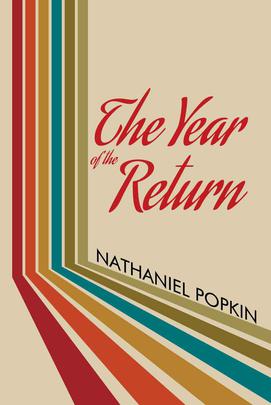© Moronic Ox Literary Journal - Escape Media Publishers / Open Books
Moronic Ox Literary and Cultural Journal - Escape Media Publishers / Open Books
Novel Excerpts, Short Stories, Poetry, Multimedia, Current Affairs, Book Reviews, Photo Essays, Visual Arts Submissions
Advertise your book, CD, or cause in the 'Ox'
What Exactly Am I Doing?
by Guest Editor
Nathaniel Popkin
Every once in a while it's worth questioning what exactly it is you're doing. I write books, but what exactly for? (Asking for a friend...) Such an impractical thing as a novel, well, what's its use? To distract? To affirm? To awaken? To empower? To entertain? To teach? To frustrate? To provoke? To seduce? To mock? To reenact?
I feel certain it is all of these things, and more, precisely because the human condition is vast and all questions about existence are complicated. As individuals we are confusing and contradictory. This is Zadie Smith's point in her supple essay, "Fascinated to Presume: In Defense of Fiction," published recently in the New York Review of Books. Here, Smith interrogates her own desire—fulfilled by writing and reading novels—to imagine embodying someone totally different. "I've never believed myself to have a voice entirely separate from the many voices I hear, read, and internalize every day," she writes. Permit me to quote Smith further on the vexing issue facing fiction, unease over writing characters who are different from the author (and please take a few minutes to read the full essay—it's about as eloquent as anything written on literature this year). "Embarrassed by the novel—and its mortifying habit of putting words into the mouths of others—many have moved swiftly on to what they perceive to be safer ground, namely, the supposedly unquestionable authenticity of personal experience," she writes.
The old—and never especially helpful—adage write what you know has morphed into something more like a threat: Stay in your lane. This principle permits the category of fiction, but really only to the extent that we acknowledge and confess that personal experience is inviolate and nontransferable. It concedes that personal experience may be displayed, very carefully, to the unlike-us, to the stranger, even to the enemy—but insists it can never truly be shared by them. This rule also pertains in the opposite direction: the experience of the unlike-us can never be co-opted, ventriloquized, or otherwise "stolen" by us.
When I broke this rule in writing The Year of The Return I did it with an anxious consciousness. "Terrific trepidation" is how I put it in answering a question from the perceptive Mitzi Rapkin on her First Draft podcast. For I understand completely the argument that says a white Jewish man hasn't the right to speak for, say, a black veteran of World War II: at issue is the power of self-determination that has too often been denied people of color. But The Year of The Return portrays such a person, and other African American characters, in fact one who, returning from the war in Vietnam, is struggling with coming out, and another who moonlights as a belly dancer. "Can I use what I feel to imagine what the other feels?" Smith asks, suggesting that the act of imagination can be an act of empathy. And I'll add to that the possibility of love.
The most salient point of The Year of The Return may be that we are all, each of us, tied up with one another. The novel traces lines of interpersonal, familiar, and community responsibility. It asks what do we owe each other, which seems to me exactly what fiction should do.
I wonder, in presuming so, if am I thinking clearly enough? Or just exercising privilege? I don't know if we ever know that what we do is right. I suppose I only hope that you will think with me.
"The intimate meeting between a book and its reader can't be predetermined," Smith writes.
I'm requesting the meeting. That's why I write books.
Nathaniel Popkin is a nationally recognized writer and editor of fiction and non-fiction, film, criticism, and journalism. He is the author of three books of non-fiction and two novels, including Everything is Borrowed (New Door Books) and Lion and Leopard (The Head and The Hand Press), which re-imagines the life and tragic death of the first great American genre painter, John Lewis Krimmel. Lion and Leopard was a finalist for the Foreword Reviews Indie Book of the Year Award. He is also the co-editor of a recent anthology, Who Will Speak for America? (Temple University Press).



